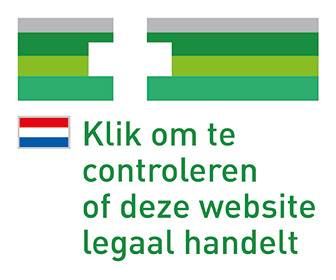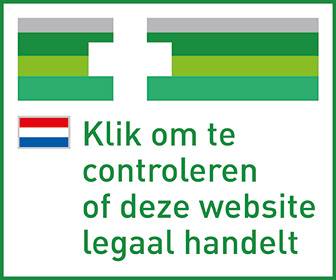Action against falsified medicines
Falsified medicines are usually offered for sale on the internet, by illegal suppliers. The Ministry of Health, Welfare and Sport (VWS) is working closely with the EU and other parties to stop the trade in and use of falsified medicines. For example, by ensuring genuine online suppliers use a logo on their website identifying them as a legally operating online pharmacy.
Fake medicines include:
- erectile dysfunction pills;
- sleeping pills and drugs to reduce anxiety;
- anti-depressants;
- strong painkillers;
- slimming tablets.
Monitoring quality and preventing falsified medicines
Falsified medicines must not get mixed up with genuine medicines sold by legally operating pharmacies. The European Union introduced the Falsified Medicines Directive (2011/62) to prevent this. The Directive is included in the Dutch Medicines Act (in Dutch). These laws aim to keep falsified medicines and their ingredients from entering the legal supply and distribution chains for medicines. Measures include:
- a common EU logo for legally operating online pharmacies;
- safety features on the packaging of prescription medicines.
Logo for legal online pharmacies

Legally operating online medicine suppliers must have the official European logo on their website. The logo means the supplier is registered as an authorised supplier. In the Netherlands, suppliers need to register with the CIBG, part of the Ministry of Health, Welfare and Sport. The CIBG checks the online pharmacy. If they are legally authorised to sell the medicines, they are put on the list of authorised suppliers (in Dutch).

The consumer clicks on the logo to access the website www.aanbiedersmedicijnen.nl. The online supplier must appear on the List of Suppliers (in Dutch) on this website. The list also specifies the medicines the supplier is allowed to sell.
Safety features
By 9 February 2019, prescription medicines must bear 2 safety features:
-
a unique code
Before giving the medicines to the patient, the pharmacist checks that the code appears in a medicines database. If it does, the medicine is genuine; -
an anti-tampering device
The manufacturer must use this on packaging so that the pharmacist can see if it has been tampered with. One example is a hologram seal.
Reporting of falsified medicines
Different organisations are working together to get a better idea of the scope of falsified medicines. They share reports of possible falsified medicines with each other and keep a record of the number of reports received. The information on the reports is periodically published by the National Institute of Public Health and the Environment (RIVM).
The following organisations receive reports:
- the Healthcare Inspectorate (IGZ);
- the National Health Care Report Centre;
- the Food and Consumer Product Safety Authority (NVWA);
- the Netherlands Pharmacovigilance Centre Lareb;
- the National Institute for Public Health and the Environment (RIVM);
- the Doping Authority;
- the National Poisons Information Centre (NVIC).
Focus on the risks of falsified medicines
Not everyone knows that medicines sold online or through other channels can be falsified. Nor is everyone aware of the risks. The Ministry of Health, Welfare and Sport is raising awareness among:
-
consumers
The Ministry is running a campaign to inform the public about the risks of ordering medicines online. It also gives clear instructions on how consumers can tell the difference between legal and illegal online medicine suppliers. -
doctors and pharmacists
The Ministry has asked the Institute for Responsible Medicine Use (IVM) to draw up information to help doctors and pharmacists recognise the health problems caused by falsified medicines.
The Ministry has also asked the RIVM to investigate how big the problem is and the harm that falsified medicines cause. The results will be shared through professional journals and presentations for care providers.
Tracing falsified medicines
The IGZ and Customs also take part in international actions against falsified medicines. One week a year, Interpol carries out Operation Pangea. During this week, organisations from around the world join forces to tackle trade in illegal medicines. During the most recent action week, in June 2016, they seized 11 million falsified and illegal medicines from 103 countries.
Sharing information
To stop the trade in falsified medicines, everyone involved needs to work together. These are:
- governments;
- manufacturers of medicines and other organisations in the pharmaceutical industry;
- care providers;
- medicine suppliers;
- patients and consumers.
The Ministry of Health, Welfare and Sport organises regular networking meetings to bring these groups together. The meetings are well attended.